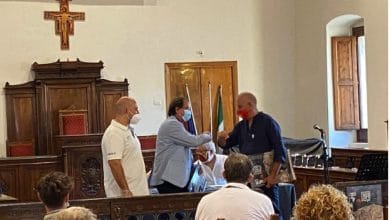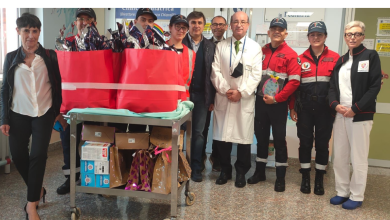
Sustainability NHS Chamber survey: "Without change and innovation, the system will collapse". Lorenzin: "Reform of supervised entities and research institutions in the autumn"
No to linear cuts, yes to supplementary healthcare, less power to the regions and the Mef, more power to the Ministry of Health. This is the summary of the fact-finding survey on the sustainability of the System conducted by the two commissions of Montecitorio, Budget and Social Affairs. The system holds up but needs changes because it's starting to creak. Lorenzin, present at the conference, announced a series of reforms for the autumn.
17 JUL – Supplementary healthcare, blocking of linear cuts, reduction of the power of the Regions and the Mef and more power to the Ministry of Health.
These are the coordinates to follow to restore balance to our NHS. An NHS with lights and shadows, but certainly irreplaceable as an indispensable tool for the protection of health, and with costs no higher than those of other countries, indeed even lower than the international and European average. A system at risk: the reduction in funding could, in fact, reduce the quality of services and their ability to respond to the health needs of the population. A system that also continues to proceed at two speeds, where the Regions subject to a recovery plan, concentrated above all in the South, continue to mark time.
The photograph of the state of health of our national health system is taken by the "inquiry into the economic sustainability of the health system" conducted between June and December 2013 by the Budget and Social Affairs commissions of the Chamber, and presented this morning in Montecitorio in the presence of the Minister of Health, Beatrice Lorenzin, and of the presidents of the respective Commissions: Francesco Boccia of the V ePierpaolo Vargiu of the XII. Objective: to evaluate the adequacy of the NHS to provide quality services, informed by the principles of equity and universality.
An investigation that the Minister of Health, Beatrice Lorenzin, he defined it as "very useful": "Many issues emerge, such as the need to recentralize controls, give greater strength to the distribution of medicines at a national level, and the need to change governance". Very useful also because "it marks the criticality levels of the health system that we used to make the health pact and also because Parliament is sharing a path of health reform".
Lorenzin: A more 'bold' pact if it had been my decree
A path of reform of which the Pact for Health it is an essential piece. Even if, for the minister, more audacity would have been needed: "If it had been the Lorenzin decree, it would have been more audacious, but it was a negotiation".
However, the minister underlined, unlike the old Pact of dreams which brought together a series of wishes often applied to the 20-30%, all the measures contained in this Pact have a roadmap, as well as a control and monitoring booth. “I gave birth to this 'baby' in nine months in which – she said – I saw everyone and negotiated with everyone. If someone thinks that the control and monitoring booth will be fake, where to change the Minister of Health ”.
After Pact health reform supervised bodies and research
But now, having signed the Health Pact, Lorenzin recalled, "two elements remain to be completed outside the agreement: the reform of the supervised bodies and that of the research bodies". Lorenzin said that two reforms will be launched in the autumn. “It is my intention – he explained – to give AIFA the powers to be a large European agency capable of making us competitive. Agenas must become the control agency, not carry out research, it must carry out checks: the research is done by the Higher Institute of Health which must go back to being the great research institute for which it was born”. Lorenzin explained that his idea is "to put a system online, to make the institutions dialogue with each other so that they can participate in grants and challenges to attract resources in a coordinated way, passing from the artisan phase to the industrial phase".
Not only Covenant, Lorenzin then underlined that to the two classic challenges of healthcare - sustainability and quality of service - a third is added, that of development: "The health system is part of the country system and around health there is not only the well-being of the people , but there is also the quality of agro-food products, the quality of the environment, the pharmaceutical industry, related research and innovation and for me all of this is our oil. It is what can make us competitive with respect to the USA and the BRICS countries. It is a sector that is a Made in Italy brand and therefore must be a source of investment”.
The season of linear cuts has ended
He entered decisively into the merits of the investigation Francis Boccia: “Supplementary healthcare, no linear cuts and reduce the power of the regions in the healthcare sector. These are the guidelines of the document approved by the Joint Commissions of Deputies. And it is from these fixed points that the Ministry and the Regions must start again, doing just the work done in recent months by the Budget and Social Affairs commissions ".
And again, Boccia specified: “For the first time, Parliament has concluded a fact-finding investigation into the financial sustainability of Italian healthcare. We have audited all categories in the sector: doctors, nurses, public and private research centres, public and private companies, the Ministry of Health and the Economy. It was a complex, shared work and the final document was approved with the favorable vote of all parliamentary groups, with the exception of the M5S, which decided to abstain".
“In recent months – continued Boccia – we have had the opportunity to really get to know, in depth, the state of health of the healthcare sector, the services provided and their quality. An opportunity to brand the season of linear cuts experienced up to now as over once again. Also because a remodulation, however necessary, of public spending would not be understood, let alone understandable, if the protagonists of the sector themselves had not been directly consulted. After a long process of listening, analysis, comparison and synthesis with the reference categories, we are delivering a courageous and concrete document to the government and Parliament to ensure the NHS the financial sustainability it needs".
Without change and innovation we sink
“Today is not a conference – the president specified Pierpaolo Vargiu – we are convinced that the extra time for conferences is also over for the Italian health system. We recommend reading the Document because all the dramas of the NHS are written within it. There are no more alibis. If we don't begin to take note of it, it will be difficult to work towards finding solutions. In the meantime, the weakest will always pay".
“The Pact for health – added Vargiu – is only the first step: our health system is creaking in a disturbing way. We are faced with twenty-one different health systems that are struggling to guarantee the same equity and universality to a Sardinian or a Venetian. It is not enough to change governance. We also need new economic resources. It is unacceptable that the ministry of the economy responds much more often to the demand for technological innovation and new health needs than that of health”.
"We have to think about change - continued Vargiu - overcoming ancient ideological prejudices, which prevent us from discussing the real problems, putting in place possible concrete solutions and the document presented today contains many shared ones, including the incentive for supplementary healthcare and the absolute urgency of investments for technological innovation and infrastructures”. For Vargiu, these elements are absolutely essential because, he concluded, “if I had to give a title to our work, I would say: health alarm. Without change and innovation we go to the bottom”.
The survey at a glance
It is a picture with lights and shadows that emerged from the investigation.
Among the decidedly positive aspects that emerged from the survey, we note the substantial sharing, by almost all of the audits, of the irreplaceable value of the NHS, as an indispensable tool for the protection of health, on the other hand, the fact that the charges deriving from the healthcare are not higher than those of other countries, but rather are placed below the international and European average.
Among the negative aspects, however, the survey firstly identifies the concern that the continuation of the financial crisis and the consequent significant reduction in funding for the NHS reduce the quality of services and their ability to respond to the health needs of the population; secondly, it was found that the regions subject to a recovery plan, and more generally, almost all of the southern regions, are in a considerably different condition than the other regions.
In particular, during the survey, particular attention was paid to the following topics: the constitutional division of responsibilities between the State and the Regions, the territorial organization of the Health Service, the funding by the State of health welfare and the new challenge the appropriateness of services also through measures aimed at rationalizing spending.
Reform of Title V
In order to face the future challenges that will arise for the NHS due to the aging of the population and the increase in health needs, the document of the fact-finding survey states, "a stronger and more targeted than that envisaged and implemented with the reform of Title V, suitable for guaranteeing a homogeneous disbursement of the Lea throughout the national territory, in order to eliminate the regional and intra-regional differences that currently exist". This means that “it would be up to the State to define the standards, the health objectives to be achieved, the control over the disbursement of the Lea, even by exercising a substitutive power; while, to the Regions, the role of planning and organizing health services would remain".
The resources saved must be reinvested in health care
As for resources, the Social Affairs and Budget commissions point out that new cuts would make it “impossible to guarantee levels of assistance and therefore equity in access to social and health services. Therefore - they underline - any resources recovered through expenditure rationalization measures will have to be allocated to the improvement of health services ". A point, that of the resources saved which must remain and be reinvested in health care, on which Minister Lorenzin also insisted a lot, during the months of elaboration and negotiations on the Health Pact.
Review the role of the Mef and Health
Among the other points highlighted by the survey, the role of health expenditure supervisor played by the Ministry of the Economy and Finance, especially in relation to the regions subject to recovery plans, which "should be balanced by a similar role of evaluation, address and, if necessary, replacement, carried out by the Ministry of Health, to protect effective compliance with the essential levels of assistance".
Territory, co-payment, supplementary healthcare and rewarding quality
The need to enhance the capacity of local services to take care of chronic patients was also highlighted, overcoming "the hospital-centric logic in favor of the domiciliary care of intermediate structures". As far as co-payments are concerned, the proposal is that of “fixing a deductible, calculated as a percentage of income, up to which each health service used during the year will have to be paid in full according to current rates. Once the deductible, which could also be progressive, has been exceeded, the services would instead be free or with minimal forms of sharing with a dissuasive effect and in any case linked to paths of clinical appropriateness ".
The document also reads of the need to “incentivise supplementary healthcare made up of supplementary funds, collective and individual insurance policies, through greater tax exemption; greater investments in primary prevention and in policies, even if not strictly health, capable of spreading correct lifestyles; of personalized medicine” to engage innovation and technological development, “of containment of defensive medicine; better use of available data; of greater speed and homogeneity in the accessibility of innovative drugs, today licensed by AIFA with a slower pace than in the remaining European contexts”.
As far as the regional health systems and healthcare companies are concerned, the Chamber commissions hope for a system that rewards "quality, by applying rules that enhance the regional health systems, the best healthcare and hospital companies and operators, including private ones, promoting a virtuous competition between suppliers" and a "greater autonomy of companies, in the event of difficulties in terms of resources, in order to manage the available production factors in a flexible and effective way".
Lowering drug prices too much favors parallel exports
Luca Pani, dThe director general Aifa, who spoke at the presentation of the fact-finding survey, focused the spotlight on pharmaceutical expenditure. “It is physiological for pharmaceutical expenditure to grow in developed countries – he explained – because otherwise there is the impression that you are not governing the system. Spending must grow. From this point of view we are second only to Spain and Portugal and Greece in terms of the average price, but because the latter has made economic manoeuvres. If prices are lowered too much we have the problem of parallel exports which are legitimate”.
Pani then presented his proposals for the expenditure: “A first proposal would be that, with the fixed funding unchanged, the pharmaceutical expenditure of the ticket is excluded from the ceiling, which in fact is the expenditure that citizens make. This would mean immediately putting 500 million back into the system. In terms of supporting innovation, companies are asked to innovate but then we are unable to sustain it economically. We can use the resources saved in the equivalents to put them back into innovation” however added Pani, “citizens must increase the percentage of purchases of generics, on this point in fact other countries such as Germany and England are doing much better than us”.
Finally, the head of Aifa put on the table some proposals for regulatory changes: to give single prices at national level for all medicines that are sold to public structures; introduction of reference lists on the price reimbursed by the NHS also for medicines in the category of expired patents; exceeding the cnn band. Finally identification of the new remuneration of pharmacies, "on this - recalled Pani - we had worked, we were at a good point, but then we stopped".
July 17, 2014 – dailyhealthcare.it
Related news: https://www.fedaiisf.it/Start/HDefault.aspx?Newsid=9501





